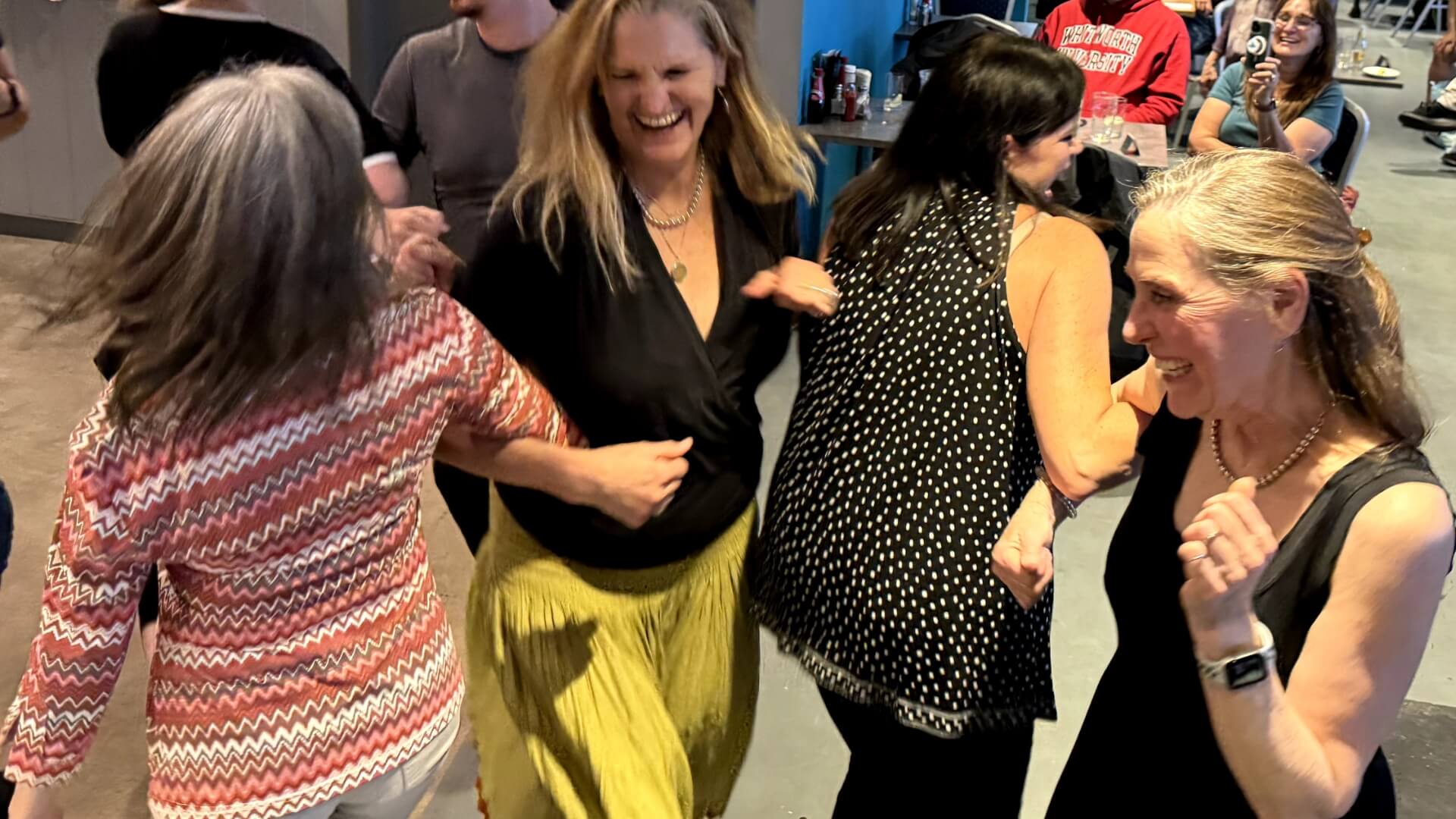Editor’s Note: Two years ago, we published this assessment of Woody Allen’s Manhattan as it marked its 40th anniversary. We’re republishing the story now as a new HBO documentary, Allen v. Farrow, presents never-before-seen evidence against Allen in the legal (and public relations) battle over whether he abused his daughter. No matter what actually happened within his family, Allen’s professional take on under-age women is deeply disturbing.
***
There is much about Woody Allen’s Manhattan that is remembered fondly today: The beautiful black-and-white cinematography by Gordon Willis. The lush Gershwin score. The romantic imagery of New York. Diane Keaton at her quirky best. The literate dialogue.
But who am I kidding? When we look back on Manhattan, one plot thread overshadows it all: the affair between the hero, Isaac, a 42-year-old writer played by Woody Allen, and Tracy, a 17-year-old high-school student, memorably portrayed by Mariel Hemingway.
Now, of course, it all seems indicative of a serious problem and lapse of judgment on Allen’s part in light of the 1992 scandal surrounding his affair with and marriage to Soon-Yi Previn, his then-partner Mia Farrow’s 21-year-old daughter, as well as the allegations made by Farrow and, in recent years, reiterated by his daughter, Dylan, that he molested her.
Back in 1979, the film was unambiguously embraced by critics and moviegoers, but for some of us—particularly young women who were approximately the age of the Tracy character—it caused confusion, not to mention a sick feeling at the pit of the stomach.
Fatally Uncool?
For me, as a movie-mad girl actually living in Manhattan who saw the film just a few weeks shy of my 17th birthday, it was deeply unsettling. I had loved Annie Hall and Allen’s “early, funny movies.” The glamorized world of New York intellectuals that Allen portrayed in Manhattan was one that I longed to part of. My friends and I celebrated Woody Allen as a neurotic Jewish underdog who conquered all by being smart and funny. But what was I supposed to make of this relationship?
What was I supposed to make of this relationship between a 42-year-old man and someone my age?
Like most teenage girls, I had had crushes on older men, but they were just crushes. If anything had happened between me and one of these men, I would have been upset, anxious, and probably disgusted. When older men catcalled me on the street or when friends of my father’s made suggestive remarks to me behind his back, I was disturbed and tried to ignore them. But here was Woody Allen—my nebbishy hero—on the big screen, having a blissful romance with a girl my age. I was very aware of and influenced by the zeitgeist, and everyone around me was celebrating this film. If I were to criticize it, wouldn’t that make me fatally uncool, like a member of the Moral Majority?
Read More: The Shocking Hodel Family Secrets TNT Left Out of the Riveting I Am the Night
Technically Legal

The author, Hannah Brown, at age 17 the summer of 1979, the year ‘Manhattan’ was released.
All of my reservations about the movie crystalized in an unsettling experience the next fall, when I went for an interview at an Ivy League school, which I very much wanted to attend. The 30ish male interviewer, after asking whether my parents had accompanied me (they had not) and reviewing my transcript and list of extracurricular activities, focused on the fact that I was the editor of my high-school newspaper and often wrote movie reviews.
“Instead of me doing a regular interview with you, why don’t we just have a conversation about a movie we’ve both seen?” he asked.
Fine, I nodded. And of course the movie he wanted to discuss was Manhattan. Had I seen it? Yes. Had I liked it? Yes.
“What did you think about the relationship between Woody Allen and the Mariel Hemingway character?” he asked, jumping into just the aspect of the film that I had hoped to avoid.
The memory of how the older man used Manhattan to “flirt” with me is inextricably linked to my thoughts about the film.
The shy, naive 17-year-old that I was didn’t have the skills to finesse this question, to turn it into a joke, or to change the subject. And while I may have been naive, I wasn’t dumb, and it was crystal clear where this was heading. I mumbled something innocuous about how they seemed like an odd couple.
“Why?” he said. “I’ve dated many young women, including freshman and sophomores at this university. Not the air-head cheerleader types—smart, serious girls …”
… Wait for it…
“… like you. Anything wrong with that?”
“Ummm … No.”
He spent the rest of the interview asking about my plans for the day. I was going to have lunch with a friend from high school who was a freshman there, I told him. A male friend or a female friend? Male. Was he my boyfriend? No. Was I going to sleep over that night? No.
I remember my relief when the interview ended without it getting any worse than that. I got wait listed there, which was what I had expected going in. But the memory of how he used Manhattan to “flirt” with me—that’s how I described it to myself, and, needless to say, I never told anyone about what was clearly a textbook case of sexual harassment by someone with a great deal of power over my future—is inextricably and understandably linked to my thoughts about the film. If I had spoken glowingly about the Allen-Hemingway relationship, would I have been accepted to the university? I’ll never know. But I feel strongly that this fairly horrendous situation gives the lie to the polite fiction that the film was just portraying an unconventional relationship. No, it was weird and predatory, if technically legal.
Eyes Wide Open
Now I wonder: How could the Soon-Yi scandal and the subsequent reckoning that Allen has faced (including the child molestation allegations) truly surprise anyone who had their eyes open when they watched Manhattan?
That the relationship was in Manhattan was technically legal has never been in dispute—17 was the age of consent in New York—but, in retrospect, it seems telling that at the time it stirred next to no controversy, both in the film and off screen. Characters in the movie responded to this romance as if it were a bit unusual or eccentric, another proof of the good taste and unconventionality of Allen’s character. Although Isaac dumps Tracy for the more age-appropriate (but still younger) Mary (Keaton’s character), in the end, Allen decides the pure and sweet Tracy is his true love, and this is portrayed as a catharsis, a rejection of shallow and superficial contemporary values.
What man in his forties but Woody Allen could pass off a predilection for teenagers as a quest for true values?
When the film first came out, the critics lavished it with praise. Vincent Canby, reviewing the film for The New York Times, was typical of many in his assessment of Manhattan as a great film and an important milestone in Allen’s career, concluding his review with the line: “Mr. Allen’s progress as one of our major filmmakers is proceeding so rapidly that we who watch him have to pause occasionally to catch our breath.”
Pauline Kael was virtually alone among the critics—particularly interesting in that she was one of the only women who wrote about the film and who also happened to have a daughter—in singling out the Allen-Hemingway relationship for sardonic scrutiny, writing in The New Yorker, “What man in his forties but Woody Allen could pass off a predilection for teenagers as a quest for true values?”
At the time, she was a lone voice crying out in the wilderness. Allen was at the height of his fame and critical acceptance, coming off the unexpected mainstream success of Annie Hall, which won four Oscars in 1978, including Best Picture. Manhattan won 15 awards around the world, was nominated for two Oscars (one of which was Best Supporting Actress for Hemingway), and was included on dozens of critics’ 10-best lists.
Disturbing Sex

Mariel Hemingway and Woody Allen in a scene from ‘Manhattan.’
For those who don’t remember the film well or have never seen it, it’s important to note that Allen makes it clear that the relationship is very sexual. The couple is shown in bed together several times, and at one point, Tracy says, “Let’s do it some strange way you always wanted to do, but nobody would do with you.” When Allen’s character breaks up with her to pursue Keaton, a despairing Tracy pleads, in perhaps not the most realistic dialogue ever written for a teenage girl, “We have laughs together. I care about you. Your concerns are my concerns. We have great sex.” The nerdy Jewish guy who got involved with WASPy goddesses had long been a theme in Allen’s work, but he had played it as comedy in the past. Here, he presented himself utterly unironically as a sexual object for this gorgeous young girl.
It’s important to note that Allen makes it clear that the relationship is very sexual.
Revealingly, Hemingway herself admitted in later years that acting this role was uncomfortable for her. She wrote in her memoir, Out Came the Sun, that playing this part made her anxious. In one kissing scene Allen “attacked me like I was a linebacker,” she told The New Cinema Magazine in 2010. Although he didn’t proposition her while they were making the movie, she wrote in her memoir that Allen invited her to go to Paris with him when the film was complete. She bowed out when it became clear to her that he expected her to share a bed with him.
Several women who were teenagers in the ‘70s have spoken publicly in recent years about sexual relationships they say they had with Woody Allen, including Babi Christina Engelhardt, who was 16 when she says she began seeing Allen in 1976, and Stacey Nelkin, who met him on the set of Annie Hall and dated him as a 17-year-old. Both have acknowledged that the Hemingway-Allen relationship in the film seemed to be inspired by their own relationships with the director and mentioned being aware that he was involved with other teenagers.
Read More: Emma Thompson Refuses to Work With a Jerk and We Love Her Even More
First Impressions
The novelist and essayist Ayelet Waldman sees Manhattan on a continuum with Allen’s subsequent scandals. “I think we can only view Manhattan now as a grotesquerie of Ephebophilia [defined as the primary sexual interest in mid-to-late adolescents, generally ages 15 to 19]. Pubescent and post-pubescent girls have always been objects of male desire, though it is only fairly recently that society as a whole has been forced to reckon with this objectification and understand it as abuse rather than titillation. Whether you believe the allegations against him or not, no one can argue with the fact that Allen is a narcissistic creep whose wildly inappropriate sexual compulsions have been feted for too long. Is he funny? Hell yes. Is he in some ways a brilliant filmmaker? Sure, absolutely. But his subject matter is despicable and it’s high time we stopped lauding his fetishes, no matter how well-written and beautifully shot they are,” she said in a recent email.
‘His subject matter is despicable and it’s high time we stopped lauding his fetishes,’ says novelist Ayelet Waldman.
When I reached out to other women of my generation who were teenagers when Manhattan was released, it unleashed a flood of memories similar to mine, of how in the climate back then, we didn’t know how to discuss our discomfort with the film. Many recalled a time when affairs between teens and much older men—often authority figures—were commonplace. The bulk of the comments people made actually centered on teacher-student affairs that were widely known about at high schools—some of which became public scandals many years later, some of which didn’t. Clearly, my query about their perceptions of the film touched a nerve.
Nancy Lauro, an art teacher who was 16 in 1979, echoes Waldman’s comments, saying, “I remember what a visually stunningly film it was and how the soundtrack … just spectacularly romanticized New York. The experience was visceral. … This would have been true especially for an adolescent girl who was the same age as Mariel Hemingway, viewing the film, given the actual theme of the story line. I might even go as far as to say, with this film, Woody Allen was like the the Leni Riefenstahl of pedophilia. Its visual style was I think, almost a way of distracting us from the fact that he was trying to recast the child molestation as something that was OK. It watered it down and confused the issue and completely glamorized sleaze.”
Anmiryam Budner, a bookseller who was in 12th grade in New York when the movie came out, admits that, in some ways, she envied the gorgeous, sophisticated Tracy. “Back then I wasn’t shocked by the relationship between Woody Allen’s character and Mariel Hemingway’s. I was, I hate to admit, jealous. Not of their relationship, Allen wasn’t appealing, but of my perception that her physical beauty afforded her a certain power that I wanted. … I felt like the age difference was not unusual—it felt like we were surrounded by teacher/student affairs, which while worthy of gossipy debate, were tacitly permitted. It was as if having a sexual relationship with an older man/woman was an instant ticket to the glamour of adulthood.”
A Perfect Storm
Manhattan wasn’t released in a vacuum. Erotic photographs and films of underage girls by David Hamilton (and other less-celebrated photographers) were popular at the time. Interestingly, decades later, Hamilton was accused of rape by several of his former models—some who were as young as 13 when they alleged he attacked them—and he apparently committed suicide in 2016. There was some outrage over the nudity of 12-year-old Brooke Shields in Louis Malle’s 1978 Pretty Baby, but the film premiered at Cannes and was nominated for an Oscar. Girls could be photographed nude, in sexually explicit poses in the 70s, and there were rarely legal—or any—consequences for the photographers.
Manhattan came out at a particular moment where the kind of relationship portrayed in the film seemed unobjectionable to many adults.
Today, there are laws on the books to protect minors from being photographed nude, and although child pornography is a huge industry, child pornographers face harsh penalties when they are caught. Particularly in light of the #MeToo and Time’s Up movements, the coerciveness of sexualizing children or teens on screen would not go unnoticed today.
Looking over all their responses I got from women—and I received hundreds of comments—and comparing our experiences as teens to the more protective climate of today, it seems that Manhattan came out at a particular moment where a perfect storm of circumstances made the kind of relationship portrayed in the film seemed unobjectionable to most adults, including many of our parents. The ‘60s had ushered in the sexual revolution that began to seem less revolutionary and much more commonplace in the ‘70s. So for quite a while—a decade or so—no one was really looking out for girls (or boys) who became the objects of sexual attention from adults in the wake of all the smashed taboos.
One person who doesn’t seem to have learned anything from the vastly different social and political climate today is Woody Allen. He recently filed a $68 million lawsuit against Amazon for its failure to release his most recent film, A Rainy Day in New York, claiming that their refusal to distribute it—and their alleged statement to him that they would no longer distribute any films they had commissioned from Allen—was based on the decades-old child molestation allegations. But there have been rumors that the film features a character played by 40-something Jude Law in a sexual relationship with Elle Fanning, who was around 17 at the time the movie was filmed. Didn’t Allen realize that this storyline would generate controversy?
A number of the actors involved in the project have donated their salaries from the film to various causes, including Selena Gomez, who reportedly gave her fee and more to Time’s Up. In an article from GQ.com with the headline “Finally, Hollywood Thinks a Woody Allen Movie is a Bad Idea,” writer Jaya Saxena reported that Rainy Day might never see the light of day, adding, “And if you’re so desperate to stream statutory rape, you could just re-watch Allen’s movie about a 42-year-old man in a relationship with a 17-year-old girl, Manhattan.”
In the end, maybe there is something we can learn from all the weirdness. As Jennifer Shaw, Opinions Editor at The Hechinger Report, who also grew up in Manhattan in the ‘70s, put it, “No wonder we’re the helicopter-parent generation.”
A version of this article was published in April 2019.























0 Comments